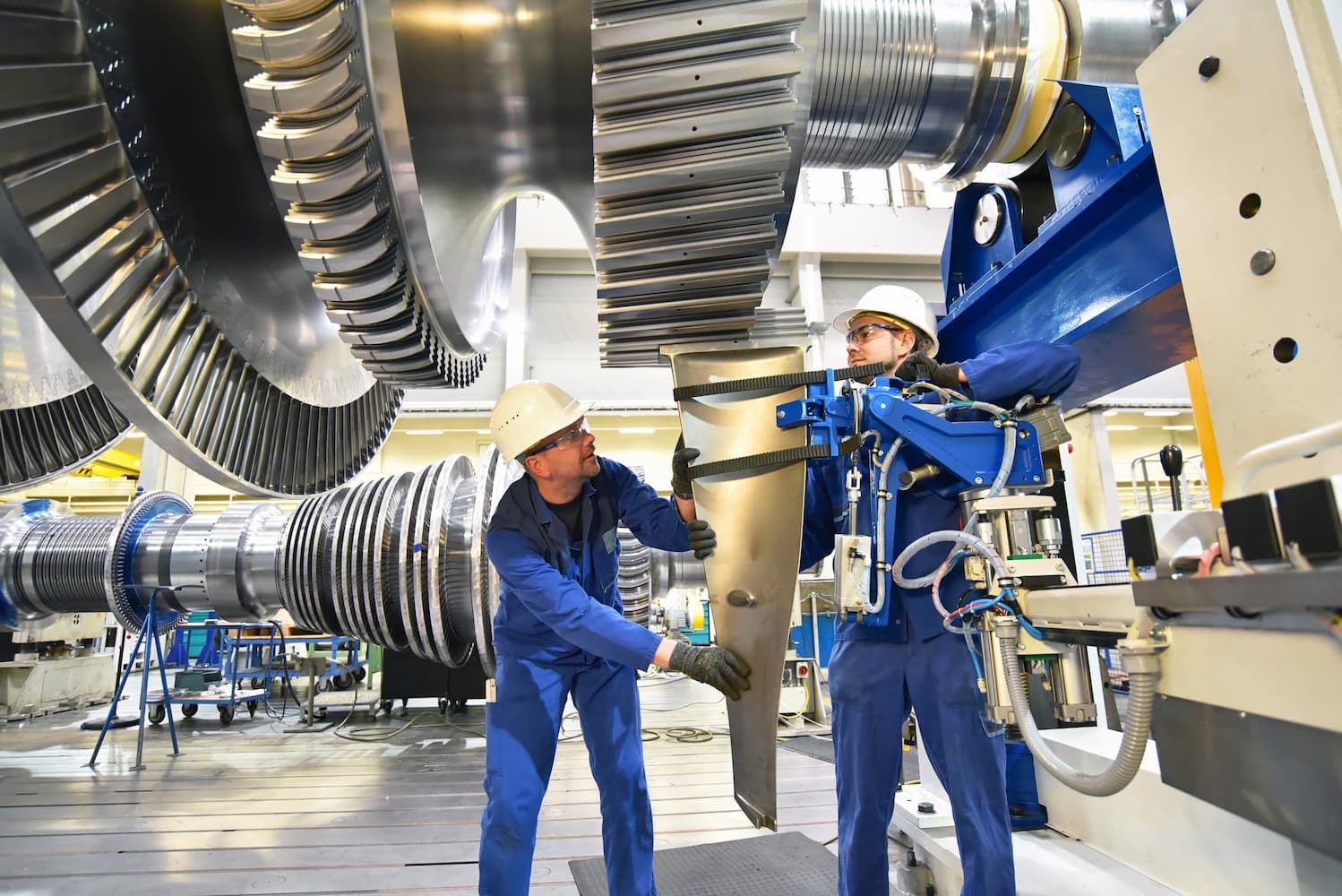How to remedy the Energy industry’s skill shortage
Business insights

Business insights
Did you know that one of the biggest challenges facing the Energy industry is a lack of skilled staff?
As the Energy industry shifts and transforms, it experiences growing pains that are necessary in order to become a more sustainable and long-lasting sector. One clear example is a shortage of the skills needed to make this transition, due in part to an aging workforce and a lack of training opportunities for new and emerging technologies.
What else has contributed to the Energy Industry’s skill shortage, and what can be done to remedy it? Here, we take a look at insights from our 2021 Energy Outlook Report to break down the biggest factors contributing to the skills shortage and what your company can do today to reverse the trend.
For more insights into the latest trends transforming the Energy industry in 2021, download our free 2021 Energy Outlook Report.
When asked about the main reasons for the ongoing skills shortage in the Energy industry, over half (56%) of recruiters said the biggest challenge they face is an aging workforce and lack of skilled staff, while 40% felt the biggest driver of the skills shortage is insufficient education and training. This is due in part to the surging renewables sector, with its new technology and innovative projects growing faster than the available training and education. This difficulty for companies and institutions to keep their training and education programs up-to-date creates a lag that results in a global skills gap.
Further, a lack of support or resources to help laid off workers find new roles is leading candidates to seek longer-lasting career opportunities, impacting the industry’s ability to rehire members of the workforce and further intensifying the skills shortage.

Other factors include inadequate succession planning and knowledge transfer (24%), strict immigration laws that prevent companies from sourcing talent globally (16%), and a loss of expertise due to retirements (15%). In addition, less and fewer younger candidates/specialists are entering the industry.
Overall, the impacts of skills shortages are being felt across the industry, but in particular in fields such as Operations and Maintenance (cited by 27%), Subsea Pipeline Construction (23%) and Health & Safety (21%).
Let’s look at some of these factors in more depth.
According to Brunel’s Global Oil & Gas Industry Leader Jeroen van Drunen, the aging Oil & Gas sector in particular is starting to see talent gaps: “Many experienced specialists are either looking to retire or developing their skills towards greener energies. With younger workers more concerned about climate change, it’s becoming increasingly challenging to identify and attract the right level of specialists to work on key Oil & Gas projects.”
Seeing as we’re still decades away from a full transition to green energy, companies need to look at how they can upskill and develop the talent they have.
With a slowdown in global mobility options amid COVID-19, companies will need to reduce their reliance on expats by recruiting, educating, and developing local talent in key regions. Therefore, another key trend which is expected to grow significantly in the coming years is companies investing more in localisation initiatives.
Crafting a successful nationalisation/localisation programme requires a lot of detailed planning. Companies need to identify the specific skills shortages they wish to address, and they need a plan for potential challenges such as managing visas for expat trainers or securing necessary tax breaks from local governments. Strategies such as having representatives who speak the local language or understand local culture can make a huge difference in ensuring a smooth rollout of the programme.
Following a challenging year with a global pandemic, more investment is being made into localization and nationalization projects to develop a local workforce. This, combined with offering more training and re-evaluating the career benefits, will be key to attracting the right specialists.
Jeroen van Drunen
Global Oil & Gas Industry Leader at Brunel
Considering that nearly half (40%) of respondents feel that insufficient education and training is the biggest driver of the worsening skills shortage, it can be seen as a massive area for improvement moving forward. New energy production methods create the need for new skills, meaning new training methods are urgently needed — especially for increasingly complex renewable energy sources such as green hydrogen and offshore wind.
Employers are looking at a range of solutions to address the problem, such as expanding training programmes for their existing workforce (64%), broadening their recruitment processes to target people with transferable skills in other industries (36%), and collaborating with colleges to attract top graduates (29%). In addition, nearly a quarter of companies (22%) have launched initiatives to recruit more women, helping to address the industry’s gender imbalance.
If your company or career is experiencing skills-related challenges in the transition from traditional energy, we would love to hear from you to learn more about your challenges and discuss potential solutions together.

As the world continues transitioning to low-carbon energy alternatives, hydrogen will be at the forefront of the transition. As a relatively new field of renewable energy, there is a massive global skills shortage in hydrogen roles, ranging from engineering to the new legal requirements created by hydrogen’s interconnected grid systems.
That’s why Brunel has partnered with the Energy Delta Institute of the Netherlands to create an accredited post-graduate education course training qualified professionals with technical and legal backgrounds to become Hydrogen Specialists — the first of such programs in the world. The entire hydrogen value chain within hydrogen is covered, from production to storage and maintenance.
The first class will start in Summer 2021. Do you want to learn more about this chance to help transform the future of energy? Contact us today.
Connecting Specialists to Pioneering Projects